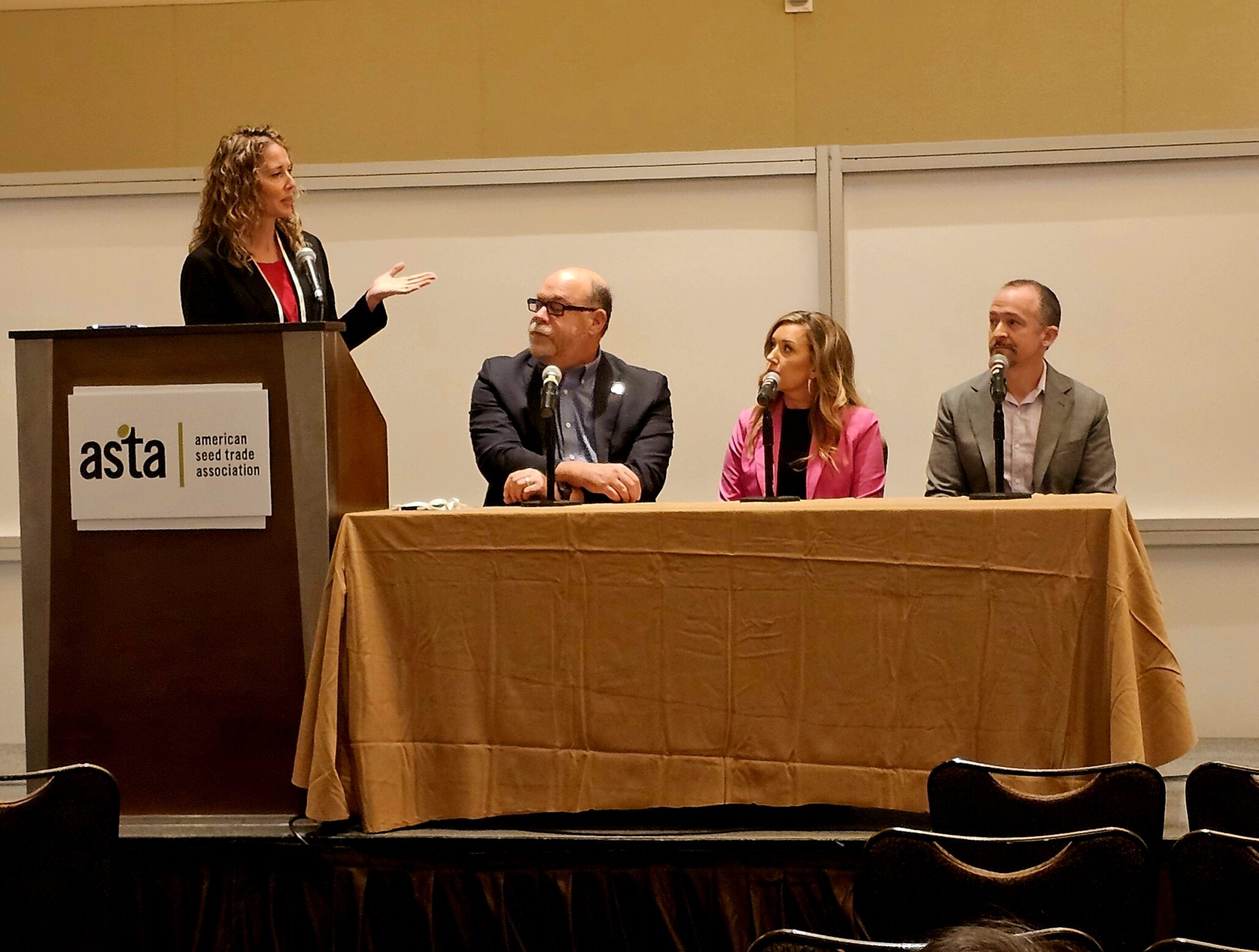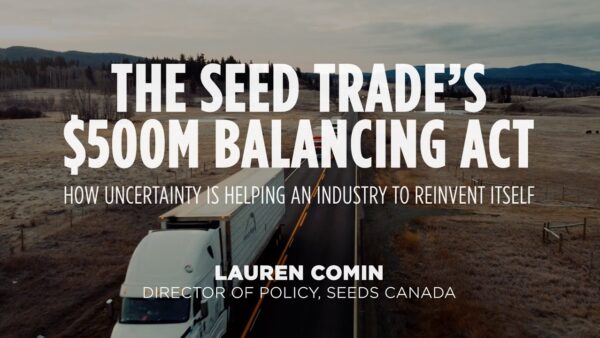Sarah Wilbanks, CEO of the Association of Official Seed Certifying Agencies (AOSCA), says AOSCA’s role in traceability, transparency and consumer confidence is more important than ever.
At the 2023 AOSCA Annual Meeting in Bloomington, Minn. (June 4 to 7), Wilbanks sat down for a Giant Views interview with Aiden Brook, Director of Partner Development at Seed World Group.
In their chat, she said AOSCA’s expertise, which spans crops, states and countries, is a benefit to the entire industry.
“We have the experts at the table. That really allows us to make sure we’re doing the work that we need to do to help facilitate the movement of seed between our states [as well as] the shipment of seed overseas.”
AOSCA’s operating structure, including its connection to the Federal Seed Act, allow it to respond efficiently to changing needs, she added.
“When something in the industry happens in one crop rotation cycle, we’re able to research that and then address it within our meeting cycle before the next crop rotation cycle, so we’re able to meet industry standards and what the industry is looking for pretty quickly. That makes us really stand out in our seed world.”
The AOSCA Annual Meeting is a jam-packed schedule of learning opportunities. Of all the many informational take-aways from the event, Wilbanks said her biggest hope is that attendees leave with an understanding and appreciation for the level of knowledge contained within AOSCA and the deep thought and effort that go into making any change in AOSCA’s certification systems.
“It’s really important to know that the level that has always been associated with AOSCA and certified seed is a very high level of knowledge and respect in the industry. That’s something that we make sure that we keep as a high priority for ourselves [in order to] keep AOSCA going for the next 100 years.”
“We have stakeholders from the USDA (United States Department of Agriculture), we work with PVP (Plant Variety Protection Act), we work with breeders, [we work with individuals and groups] from all aspects of the industry. Our system really allows us to make decisions … that are positive to the other players within our industry.”
Individual seed companies play an important role in furthering AOSCA’s work. Specifically, Wilbanks said seed companies can help promote seed certification by educating growers and consumers.
“I think there at times is a lack of education within the industry. We know that’s with anything to do with agriculture: we’re always having to battle and try to explain what it is that we do, how and why, [especially regarding] responsible agriculture and things like that. [It’s important that] our seed companies are saying, ‘Hey, this is this is certified seed and this is what that means for you,’ That’s really the selling point.”
Seed certification is a critical component of traceability. Wilbanks said consumers’ increasing demands for traceability make AOSCA’s efforts more important than ever.
“Consumers are wanting to know the full story … of what was put on their seed, how their seed was treated, all those different aspects. That’s the main goal of traceability: to have that transparency to the consumer.”
Ultimately, an informed consumer tends to be a more supportive consumer.
“Consumers are driving all of these markets,” said Wilbanks. “I think the more that they know, the better off we’re going to be in the end. In the ag industry, those who are knowledgeable and do have the facts — the proper scientifically supported facts — are probably in the minority. We’re out trying to advocate for what we do and how we do it… The more that we can teach people and the more that we can show people how responsible we are in agriculture — with our crop systems and fertilizing systems, water, everything — I think that’s going to help build on creating the appropriate message that consumers need to hear.”
To hear the entire conversation with Sarah Wilbanks, watch this Giant Views video.












